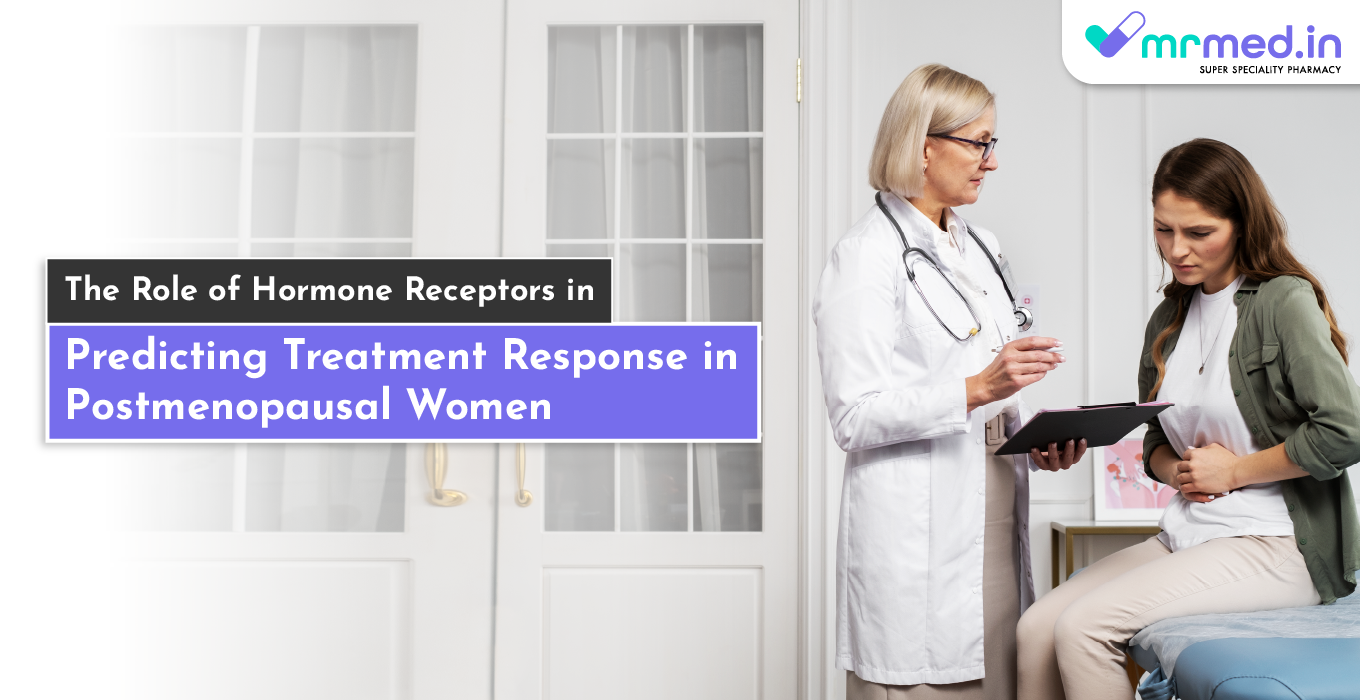Introduction
In breast cancer treatment, understanding the role of hormone receptors in predicting treatment response is paramount, particularly in postmenopausal women. Hormone receptor-positive (HR-positive) breast cancer constitutes a significant proportion of cases in this population. This article explores the significance of hormone receptors and their implications in treatment response among postmenopausal women with HR-positive breast cancer. Additionally, we will delve into the use of antineoplastic medicines, particularly endocrine therapies, in managing this type of breast cancer.
Hormone Receptors and Breast Cancer
Hormone receptors, namely estrogen receptors (ER) and progesterone receptors (PR), play a crucial role in the development and progression of breast cancer. HR-positive breast cancer cells possess these receptors on their surface, enabling them to respond to estrogen and progesterone. Activation of these receptors can promote cancer cell growth and survival. Conversely, targeting hormone receptors provides a therapeutic avenue for controlling tumor growth and preventing disease recurrence.
Predicting Treatment Response
Assessing hormone receptor status is vital in predicting treatment response and tailoring appropriate therapies for postmenopausal women with breast cancer. HR-positive status indicates that the cancer cells are dependent on hormonal signaling for growth. These patients typically demonstrate improved responses to endocrine therapies compared to those with HR-negative tumors. Endocrine therapies function by inhibiting estrogen signaling or blocking the interaction of estrogen with its receptors, thereby impeding cancer cell proliferation and survival.
Endocrine Therapies in HR-Positive Breast Cancer
Endocrine therapies form the cornerstone of treatment for HR-positive breast cancer in postmenopausal women. These therapies include selective estrogen receptor modulators (SERMs), aromatase inhibitors (AIs), and gonadotropin-releasing hormone (GnRH) analogs. SERMs, like tamoxifen, inhibit the interaction of estrogen with its receptors. Fulvestrant, an estrogen receptor antagonist, binds to estrogen receptors in cancer cells and blocks estrogen's action, slowing or stopping tumor cell growth. Faslodex injection containing fulvestrant is commonly used to treat HR-positive breast cancer.
The Efficacy of Endocrine Therapies
Endocrine therapies have demonstrated remarkable efficacy in managing HR-positive breast cancer in postmenopausal women. They can be used as adjuvant therapy following surgery to reduce the risk of disease recurrence or as neoadjuvant therapy to shrink tumors before surgery. Additionally, endocrine therapies can be employed in the metastatic setting to control disease progression and improve survival. The selection of a specific endocrine therapy depends on various factors, including menopausal status, disease stage, and patient preferences.
Combination Therapies and Resistance
Despite the efficacy of endocrine therapies, some patients may develop resistance over time. To overcome this challenge, combination therapies are being explored. For instance, targeted therapies like CDK4/6 inhibitors (e.g., palbociclib) have been approved in combination with endocrine therapies to enhance treatment response and delay disease progression. Furthermore, ongoing research aims to identify novel predictive biomarkers to better personalize treatment approaches and identify patients at risk of developing resistance.
Conclusion
Hormone receptors serve as critical biomarkers in predicting treatment response in postmenopausal women with HR-positive breast cancer. Their presence enables the use of targeted endocrine therapies, which have revolutionized the management of this disease. The use of antineoplastic medicines, particularly endocrine therapies, has significantly improved outcomes and survival rates for postmenopausal women with HR-positive breast cancer. Continued research and advancements in understanding the intricate relationship between hormone receptors and treatment response will further refine therapeutic strategies and optimize patient outcomes in the future.




